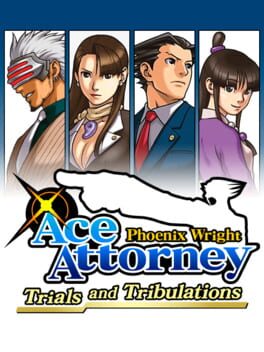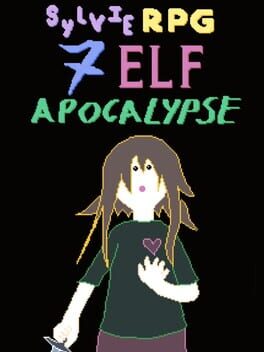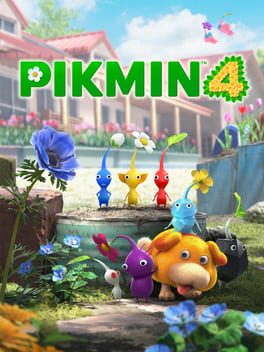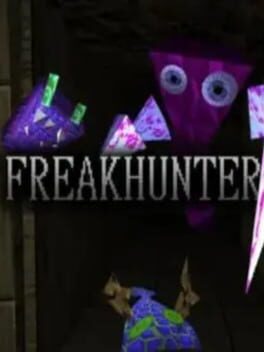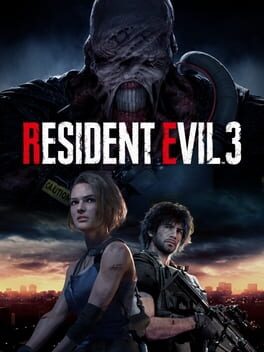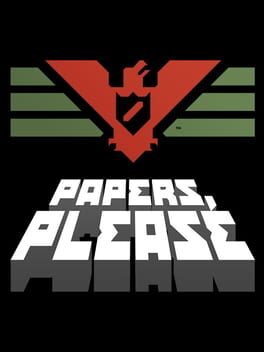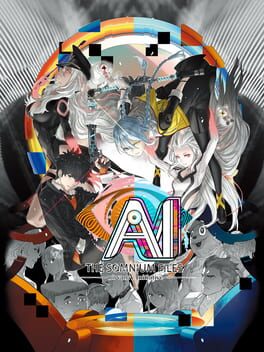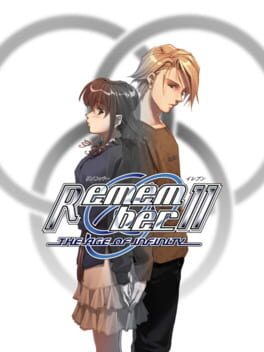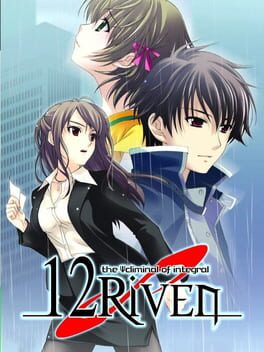Executive_Koala
10 reviews liked by Executive_Koala
Great BUMP Action RPG, and a great length at about 1-2 hours! https://sylvie.itch.io/sylvie-rpg
I like how compact the world is and how that allows you to switch between modes of playing quickly - trying to open up each room's secret entrances, grinding for money, trying to survive and form a mental map of an area... the game has a lot of playfulness in its secrets designs that show lineage from older action RPGs like Golvellius, Ys. That era of games are a lot of fun, but they sometimes have moments where moon logic or difficult mapping efforts are needed to complete them. I enjoy that to an extent, but I like the way that Sylvie RPG takes some of the mystique those games achieve but presents it in a way that allows the game to stand more on its own as a whole (without requiring the need to look up a guide.) It's a hard balance to keep a game feeling mysterious and challenging without sending people off to the guides, and I think this game balances everything well. There's secrets I couldn't figure out, but I'm proud to have cleared the game on my own!
Additionally, if you pay for the game you can get bonus files, including a design analysis of the game. It was interesting to read this for a number of reasons. For one, the game cites Angeline Era as a minor influence to one aspect of the combat (opting for Angeline Era style bump-combat (you can attack an enemy from any direction), vs. Ys's "hit the enemy at an angle").
This is an interesting thing to see because Sylvie RPG was made and released while Angeline Era is still in development. There's very few bump action games out there, so being able to play Sylvie RPG and read about it was useful as a point of comparison.
In the design notes, Sylvie describes the "Three Modes of Play" idea that was a guiding principle - in this case, "Exploration", "Resource Gathering" and "Stage Clearing". It's three modes of play that many Action Adventures/RPGs tend to have in various ratios. I think the choices the game makes (de-emphasizing Stage Clearing for the other two) work well. Sylvie RPG does feature 'stages' (defeating bosses) but much of the time is spent poking around the screens and trying to uncover secret caves on each screen. These range from grottos you can buy swords in, to shortcuts, to little helper cats who will come fight with you.
There's neat decisions related to this - like how bosses respawn you near the fight entrance, but you start with the stats you initially reached the boss at.
I also found it interesting that Sylvie RPG's conclusions about defense are similar to the ones we have in Angeline Era, in that for games with more of a focus on action and smaller numbers (where enemies often take a few hits to kill), defense items are hard to balance. Because flatly making everything in the game less threatening is not always an ideal choice. I liked Sylvie RPG's solution which lets you get shields, which negate most damage, but you drop the shield if hurt (and have to pick it up, which can be dangerous.)
Anyways, above all else it's an interesting game world to explore. Go play it! Support bump combat
I like how compact the world is and how that allows you to switch between modes of playing quickly - trying to open up each room's secret entrances, grinding for money, trying to survive and form a mental map of an area... the game has a lot of playfulness in its secrets designs that show lineage from older action RPGs like Golvellius, Ys. That era of games are a lot of fun, but they sometimes have moments where moon logic or difficult mapping efforts are needed to complete them. I enjoy that to an extent, but I like the way that Sylvie RPG takes some of the mystique those games achieve but presents it in a way that allows the game to stand more on its own as a whole (without requiring the need to look up a guide.) It's a hard balance to keep a game feeling mysterious and challenging without sending people off to the guides, and I think this game balances everything well. There's secrets I couldn't figure out, but I'm proud to have cleared the game on my own!
Additionally, if you pay for the game you can get bonus files, including a design analysis of the game. It was interesting to read this for a number of reasons. For one, the game cites Angeline Era as a minor influence to one aspect of the combat (opting for Angeline Era style bump-combat (you can attack an enemy from any direction), vs. Ys's "hit the enemy at an angle").
This is an interesting thing to see because Sylvie RPG was made and released while Angeline Era is still in development. There's very few bump action games out there, so being able to play Sylvie RPG and read about it was useful as a point of comparison.
In the design notes, Sylvie describes the "Three Modes of Play" idea that was a guiding principle - in this case, "Exploration", "Resource Gathering" and "Stage Clearing". It's three modes of play that many Action Adventures/RPGs tend to have in various ratios. I think the choices the game makes (de-emphasizing Stage Clearing for the other two) work well. Sylvie RPG does feature 'stages' (defeating bosses) but much of the time is spent poking around the screens and trying to uncover secret caves on each screen. These range from grottos you can buy swords in, to shortcuts, to little helper cats who will come fight with you.
There's neat decisions related to this - like how bosses respawn you near the fight entrance, but you start with the stats you initially reached the boss at.
I also found it interesting that Sylvie RPG's conclusions about defense are similar to the ones we have in Angeline Era, in that for games with more of a focus on action and smaller numbers (where enemies often take a few hits to kill), defense items are hard to balance. Because flatly making everything in the game less threatening is not always an ideal choice. I liked Sylvie RPG's solution which lets you get shields, which negate most damage, but you drop the shield if hurt (and have to pick it up, which can be dangerous.)
Anyways, above all else it's an interesting game world to explore. Go play it! Support bump combat
Pikmin 4
2023
Freakhunter
2023
Freakhunter
2023
Resident Evil 3
2020
Papers, Please
2013
I think about this game a lot. At least once or twice a week. It used to be more, but then I became self-employed.
There are a lot of great journalistic thinkpieces and independent navel-gazing out there that very accurately surmise Papers, Please as an excellent depiction of the inherent inhumanity of border control as well as what it's like to live under a fascist regime even in a position of 'power'.
Those are all valid and well done, I love them myself, but there's one angle I rarely if ever see come up:
This game is a shockingly and deeply uncomfortable representation of what it's like to work in customer service, administration, or - god forbid - Human Resources.
It's easy to nod and maybe even laugh when you're told "Dismiss anyone who seems suspicious. Typos are the devil. Anyone from [x] region." I sure did when this game came out.
Then I was put in charge of filtering out CVs and highlighting 'suitable applicants'. I was told to dismiss anyone with inconsistencies or oddities, to immediately shred a CV with any typos, and to be [direct quote] "cognizant of anything unusual on the name front". Many of the people I authorized made it to the interview and failed miserably. Suddenly, the game becomes a lot more real. I quit that job after a year or so.
People often bring up how awful it is to be faced with someone who's broken the rules or is a 'valid rejection' despite making earnest pleas, having family or some other such reason. I often bring up how, working for both a large retailer and a branch of the government which dealt with benefits claimants, this was my average shift. Indeed, if you've been on either side of claiming benefits in the UK (I've been on both), this game goes from uncomfortable to stomach churning. There's a reason I quit the latter job within three months.
And, in both the game and bureaucracy, 'doing good' is at best inconvenient and at worst actively self-sabotaging. It's nice to do good. It's nice to be nice. But apartments cannot be warmed as easily as hearts, and while you may be okay with a heartfelt 'thanks' from a desperate customer/claimant, landlords tend to prefer cash. In PP the consequences are an immediate citation, in reality they're far more insidious. 5 shifts on the schedule turns into 2, and 2 turns into 0. All without a word, a tyrannical silent punishment for the sin of having a soul. Not as instant as a citation, but the effects are the same.
Unlike reality, however, PP believes in empowerment. You, a lowly border control inspector, can potentially dismantle the fascist regime you operate under and really stick it to the machine. It's nice, cathartic even. This game's most emotional moments are often the understated weight of a hopeless person coming up against the dehumanizing maws of fascism and passing through unscathed, conveyed with little more than sprites and brief popup text. Lucas Pope's specialty, honestly.
But in a game so deeply steeped in the miserable, beige parts of the modern world, it's the one part which is sadly divorced from it. A world where middle managers can effortlessly snuff out any act of rebellion is not a world where one goblin in a cubicle can tear down capitalism. Sometimes, your rebellion never gets further than sighing and offering someone a 100% refund when they're only entitled to 75%, and then bullshitting your manager that they had a 'convincing story' (your dad lies better) and 'you were tired' (of the job, perhaps, but the 3 coffees in my body are necromantic).
I come back to this game a lot. I own it on Steam and have for about 7 years now, but I always play it on a pirated copy I stuck on a USB stick ages ago. Dunno why. Maybe it makes me nostalgic for using it to slack off at, ironically, my old receptionist job. I like to read what people think of it, but am always a bit disheartened to see a somewhat rigid interpretation of the game as just about border control, fascism or the Soviet Union. No other game has captured just how corruptive, anti-human and so deeply boring the evils of bureaucracy are.
There's an ending you can get if you remain loyal to the government. You only need to be loyal. Doesn't matter if you're bad at your job, only that the Arstotzkan government knows you say 'thank you sir' as its iron grip tightens around your throat. I got this ending on my most recent playthrough. It reminded me of a good 60% of my managers, and a co-worker I had named Charlie who they kept on despite being in the throes of dementia. I hope he's getting the care he needs.
I don't work admin/clerical jobs anymore. I don't have the inhumanity in me, I'm afraid. The last job I ever worked told me not to say "terminate" when closing a call with a distressed customer because it might make them upset.
The closest I get is when I help people fill out forms for the DWP, or fight sanctions imposed on them for missing an appointment scheduled at 7am when they live 5 miles away. Companies and agencies are staffed by people, and people are easily inconvenienced. Not even the most ardent DWP believer wants to read a 4000 word rebuttal to a sanction they lazily approved on a Friday evening. Sometimes, being annoying is more effective than being compliant.
So, anyway, do you remember Jorji Costava?
There are a lot of great journalistic thinkpieces and independent navel-gazing out there that very accurately surmise Papers, Please as an excellent depiction of the inherent inhumanity of border control as well as what it's like to live under a fascist regime even in a position of 'power'.
Those are all valid and well done, I love them myself, but there's one angle I rarely if ever see come up:
This game is a shockingly and deeply uncomfortable representation of what it's like to work in customer service, administration, or - god forbid - Human Resources.
It's easy to nod and maybe even laugh when you're told "Dismiss anyone who seems suspicious. Typos are the devil. Anyone from [x] region." I sure did when this game came out.
Then I was put in charge of filtering out CVs and highlighting 'suitable applicants'. I was told to dismiss anyone with inconsistencies or oddities, to immediately shred a CV with any typos, and to be [direct quote] "cognizant of anything unusual on the name front". Many of the people I authorized made it to the interview and failed miserably. Suddenly, the game becomes a lot more real. I quit that job after a year or so.
People often bring up how awful it is to be faced with someone who's broken the rules or is a 'valid rejection' despite making earnest pleas, having family or some other such reason. I often bring up how, working for both a large retailer and a branch of the government which dealt with benefits claimants, this was my average shift. Indeed, if you've been on either side of claiming benefits in the UK (I've been on both), this game goes from uncomfortable to stomach churning. There's a reason I quit the latter job within three months.
And, in both the game and bureaucracy, 'doing good' is at best inconvenient and at worst actively self-sabotaging. It's nice to do good. It's nice to be nice. But apartments cannot be warmed as easily as hearts, and while you may be okay with a heartfelt 'thanks' from a desperate customer/claimant, landlords tend to prefer cash. In PP the consequences are an immediate citation, in reality they're far more insidious. 5 shifts on the schedule turns into 2, and 2 turns into 0. All without a word, a tyrannical silent punishment for the sin of having a soul. Not as instant as a citation, but the effects are the same.
Unlike reality, however, PP believes in empowerment. You, a lowly border control inspector, can potentially dismantle the fascist regime you operate under and really stick it to the machine. It's nice, cathartic even. This game's most emotional moments are often the understated weight of a hopeless person coming up against the dehumanizing maws of fascism and passing through unscathed, conveyed with little more than sprites and brief popup text. Lucas Pope's specialty, honestly.
But in a game so deeply steeped in the miserable, beige parts of the modern world, it's the one part which is sadly divorced from it. A world where middle managers can effortlessly snuff out any act of rebellion is not a world where one goblin in a cubicle can tear down capitalism. Sometimes, your rebellion never gets further than sighing and offering someone a 100% refund when they're only entitled to 75%, and then bullshitting your manager that they had a 'convincing story' (your dad lies better) and 'you were tired' (of the job, perhaps, but the 3 coffees in my body are necromantic).
I come back to this game a lot. I own it on Steam and have for about 7 years now, but I always play it on a pirated copy I stuck on a USB stick ages ago. Dunno why. Maybe it makes me nostalgic for using it to slack off at, ironically, my old receptionist job. I like to read what people think of it, but am always a bit disheartened to see a somewhat rigid interpretation of the game as just about border control, fascism or the Soviet Union. No other game has captured just how corruptive, anti-human and so deeply boring the evils of bureaucracy are.
There's an ending you can get if you remain loyal to the government. You only need to be loyal. Doesn't matter if you're bad at your job, only that the Arstotzkan government knows you say 'thank you sir' as its iron grip tightens around your throat. I got this ending on my most recent playthrough. It reminded me of a good 60% of my managers, and a co-worker I had named Charlie who they kept on despite being in the throes of dementia. I hope he's getting the care he needs.
I don't work admin/clerical jobs anymore. I don't have the inhumanity in me, I'm afraid. The last job I ever worked told me not to say "terminate" when closing a call with a distressed customer because it might make them upset.
The closest I get is when I help people fill out forms for the DWP, or fight sanctions imposed on them for missing an appointment scheduled at 7am when they live 5 miles away. Companies and agencies are staffed by people, and people are easily inconvenienced. Not even the most ardent DWP believer wants to read a 4000 word rebuttal to a sanction they lazily approved on a Friday evening. Sometimes, being annoying is more effective than being compliant.
So, anyway, do you remember Jorji Costava?
Nirvana Initiative is bad. I've been sitting here for like 2 hours writing about how bad it is, but I gave up because I realized I was getting way too wordy (like, encroaching on 1k. nobody's going to read all of that).
the most important thing is that Nirvana Initiative has two layers of badness to it. the first is that, as a standalone title, it's full of messy and insecure writing, obsessed with pulling the rug out from under you at the expense of any compelling or coherent characterization or storytelling. Nirvana Initiative's top priority at any given time is to make sure The Big Reveal is surprising, surprising always taking precedence over satisfying.
the second layer is that as a sequel, it is even worse. and this is the one that really gets me, that takes AINI from a lukewarm disappointment to a raging dumpster fire for me (I could say I'm a fan of the first game, but that kind of downplays the fact that I think about it near 24/7). there's ways they could have mitigated this, but the writers wanted to have their cake (all the characters old fans love from the first game) and eat it too (accessibility to new players who don't know who any of these people are). Nirvana Initiative flounders under its no spoiler policy, meaning no character arcs or threads from the first game can be meaningfully followed up in this one. all of the returning cast, without fail, is flanderized, retconned, or otherwise subjected to absolutely bizarre creative decisions, either to service the new mediocre plot or to preserve the "mystery" of the first one - including and especially the character that returns as one of the protagonists of AINI. it's bad enough to the point where I frequently find myself wishing it focused on ONLY new characters in a new setting without trying to bring the previous cast into the picture at all.
one last, salty sidenote: anyone who says the gameplay is an improvement over the first game is lying to you. QTEs are "improved" by making them last longer (upwards of 15 minutes straight in some instances), putting in more of them, and requiring more complex inputs which, if messed up once, boots you back to the beginning of the sequence. there is a fast-forward button, but it's not nearly fast enough. likewise, Somnia are "improved" by making them longer and stripping back interactivity with most objects except the ones explicitly required to progress through the Somnium. many Somnia in AINI follow the format introduced in one of AITSF's late-game Somnia, PSYNCIN' IN THE REFRaiN, where you are given a group of the same or similar objects in a little pile and the puzzle is to pick the right one out of the bunch. REFRaiN is one of the longer Somnia in the first game, and it takes about 30-40 minutes - now imagine doing this for an hour or even an hour and a half, and imagine doing it in five Somnia instead of just one, and that's pretty much AINI's revolutionary new take on Somnia as a whole. also two of them have swim mechanics, and they play as badly as you'd expect them to.
the most important thing is that Nirvana Initiative has two layers of badness to it. the first is that, as a standalone title, it's full of messy and insecure writing, obsessed with pulling the rug out from under you at the expense of any compelling or coherent characterization or storytelling. Nirvana Initiative's top priority at any given time is to make sure The Big Reveal is surprising, surprising always taking precedence over satisfying.
the second layer is that as a sequel, it is even worse. and this is the one that really gets me, that takes AINI from a lukewarm disappointment to a raging dumpster fire for me (I could say I'm a fan of the first game, but that kind of downplays the fact that I think about it near 24/7). there's ways they could have mitigated this, but the writers wanted to have their cake (all the characters old fans love from the first game) and eat it too (accessibility to new players who don't know who any of these people are). Nirvana Initiative flounders under its no spoiler policy, meaning no character arcs or threads from the first game can be meaningfully followed up in this one. all of the returning cast, without fail, is flanderized, retconned, or otherwise subjected to absolutely bizarre creative decisions, either to service the new mediocre plot or to preserve the "mystery" of the first one - including and especially the character that returns as one of the protagonists of AINI. it's bad enough to the point where I frequently find myself wishing it focused on ONLY new characters in a new setting without trying to bring the previous cast into the picture at all.
one last, salty sidenote: anyone who says the gameplay is an improvement over the first game is lying to you. QTEs are "improved" by making them last longer (upwards of 15 minutes straight in some instances), putting in more of them, and requiring more complex inputs which, if messed up once, boots you back to the beginning of the sequence. there is a fast-forward button, but it's not nearly fast enough. likewise, Somnia are "improved" by making them longer and stripping back interactivity with most objects except the ones explicitly required to progress through the Somnium. many Somnia in AINI follow the format introduced in one of AITSF's late-game Somnia, PSYNCIN' IN THE REFRaiN, where you are given a group of the same or similar objects in a little pile and the puzzle is to pick the right one out of the bunch. REFRaiN is one of the longer Somnia in the first game, and it takes about 30-40 minutes - now imagine doing this for an hour or even an hour and a half, and imagine doing it in five Somnia instead of just one, and that's pretty much AINI's revolutionary new take on Somnia as a whole. also two of them have swim mechanics, and they play as badly as you'd expect them to.
